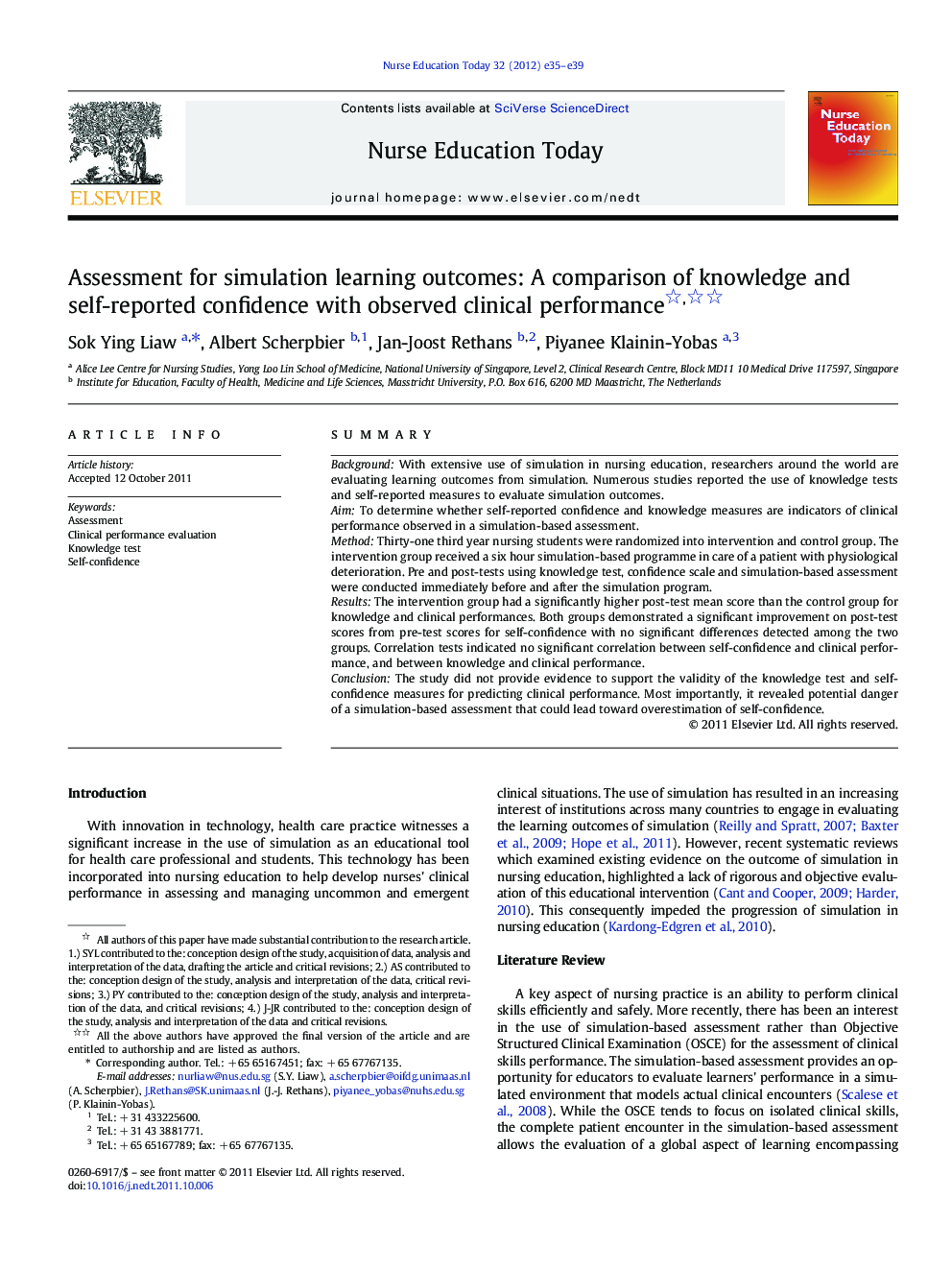| Article ID | Journal | Published Year | Pages | File Type |
|---|---|---|---|---|
| 368555 | Nurse Education Today | 2012 | 5 Pages |
SummaryBackgroundWith extensive use of simulation in nursing education, researchers around the world are evaluating learning outcomes from simulation. Numerous studies reported the use of knowledge tests and self-reported measures to evaluate simulation outcomes.AimTo determine whether self-reported confidence and knowledge measures are indicators of clinical performance observed in a simulation-based assessment.MethodThirty-one third year nursing students were randomized into intervention and control group. The intervention group received a six hour simulation-based programme in care of a patient with physiological deterioration. Pre and post-tests using knowledge test, confidence scale and simulation-based assessment were conducted immediately before and after the simulation program.ResultsThe intervention group had a significantly higher post-test mean score than the control group for knowledge and clinical performances. Both groups demonstrated a significant improvement on post-test scores from pre-test scores for self-confidence with no significant differences detected among the two groups. Correlation tests indicated no significant correlation between self-confidence and clinical performance, and between knowledge and clinical performance.ConclusionThe study did not provide evidence to support the validity of the knowledge test and self-confidence measures for predicting clinical performance. Most importantly, it revealed potential danger of a simulation-based assessment that could lead toward overestimation of self-confidence.
